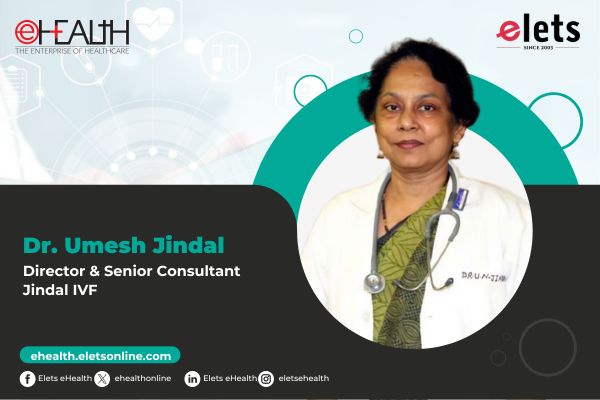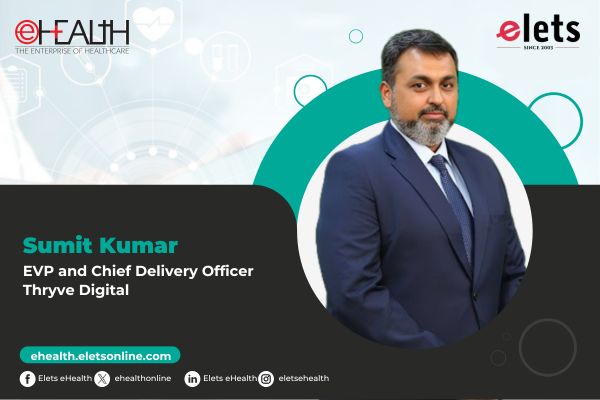
A group of healthcare experts discussed and deliberated on an important topic, ‘Unlocking innovations in Healthcare’ on Day 2 of the Healthcare Transformation Summit, highlighting how innovation in health is evolving rapidly and how they ease treatments.
The panelists who shared the virtual dais were Sunil D Khaparde, Former Deputy DG, TB Control, GoI, Dr D K Gupta, Chairman & MD, Felix Hospital, Dr Sandeep Chatrath , Regional CEO & Group Medical Director,Metro Hospitals, Maj. Gen. S C Pareek, Executive Director, Bhagwaan Mahaveer Cancer Hospital & Research Centre, Dr Dilip Rangarajan , Group Medical Director, NU Hospital, Dr Ashish Chauhan, Consultant, Apollo Institute of Medical Science & Research Center and Dr.Vijayabaskaran Sundararaju, Executive Director,Kauvery Hospital

COVID-19 has elevated healthcare as a national security issue, Dr. Sandeep Chatrath, Regional CEO & Group Medical Director, Metro Hospitals said, ” Infection control, clinical care pathways, virtual platforms, tele-consults have gained impetus. We are right now from survival to revival approach and PPP has gained momentum. Health insurance has risen to be a very important factor. COVID has taught us that healthcare is a society’s responsibility. Access improvement with empowered digital penetration is important. Artificial Intelligence (AI) looked like something that should be synergized with the physicians, it improves the overall healthcare by 15 to 20 per cent. India is the world capital of NCDs and technology like AI can help to diagnose knowing the risk factors and huge scope.”

Also read: Innovations in Healthcare Laying Foundation of New India

Informing that the past five months was like a war zone , Maj. Gen. S C Pareek, Executive Director, Bhagwaan Mahaveer Cancer Hospital & Research Centre, said, ” We are treating only cancer patients and they are immunosuppressed so combating the virus was a major challenge. We had one building dedicated to the COVID patients, from 20th March to 14th April we created our own PPE, masks, hand gloves and sanitizers for the staff and patients. Each patient was sent a message that only at a time of emergency they can visit the hospital. From 4th May we started working full-fledged it was a gradual process. We have treated them 650 patients, 739 patients were given radiation, 2364 were given chemotherapy. People who were treated inside the hospital were not infected by the virus. Tele-consultation was introduced and each doctor was connected with the patient.”

Speaking about data, Pareek said, ” In war management and casualties we learn from the past experience similarly we need to learn from past experience and be prepared. The new technology will reduce the unconventional workforce. But before acquiring a technology we need to train our workforce to put it into best use, also the allocation of budget for health particularly for research is crucial. Digitalization should start from Primary Healthcare Centres (PHC).
Dealing with renal failure, dialysis, renal transplants patients, Dr Dilip Rangarajan, Medical Director, NU Hospital said, ” We had to deal with immunosuppressed patients so our first step was to staff adequately to take care of our patients. Putting down the protocols right from screening, disinfection process, how to maintain social distancing was done. Telemedicine was of great help. We have a good backup of data and for almost eight years we have monitored hand hygiene and stored it in the Hospital Infection Control Committee (HICC).
Right usage of the health fraternity and introduction of Indian Medical Service (IMS) will take us a long way, informed, Dr. Ashish Chauhan, Consultant, Apollo Institute of Medical Science & Research Center, he further said, “This pandemic has opened up flood gates to tell us that what we are neglecting is community medicine and epidemiology. The future is all about app-related approaches, telemedicine. Innovation in vaccination development, infrastructure, and insurance is much needed.”
Pointing about the less spend on health, Dr.D K Gupta, Chairman & MD, Felix Hospital, said, ” We are investing only 1.08 percent of GDP it is the lowest compared to many countries. The pandemic is an eye-opener that we need to increase our healthcare spending. Abided all the Indian Council of Medical Research (ICMR), Ministry of Health and Family Welfare (MoHFW) guidelines on treating the COVID-19 patients. We were using robotics only for operations purposes now I think it will be used for operational purposes as well right from infection control to food delivery within the hospital. “
Pointing out the new age innovations, Dr.Vijayabaskaran Sundararaju, Executive Director, Kauvery Hospital, said ” We initiated the treatment protocol and it was evidence-based and need-based. Wi-Fi enabled thermometer and pulse oximeter was used to monitor asymptomatic patients. As far as data is concerned in the past five months alone we have analysed close to 80,000 to 90,000 CT as we have 25 radiologists across the group and from this statistical analysis we can check the disease progress and recovery pattern. Data can be used in multiple ways even if it can be used to be cost-effective.”
Be a part of Elets Collaborative Initiatives. Join Us for Upcoming Events and explore business opportunities. Like us on Facebook , connect with us on LinkedIn and follow us on Twitter , Instagram.
"Exciting news! Elets technomedia is now on WhatsApp Channels Subscribe today by clicking the link and stay updated with the latest insights!" Click here!
















